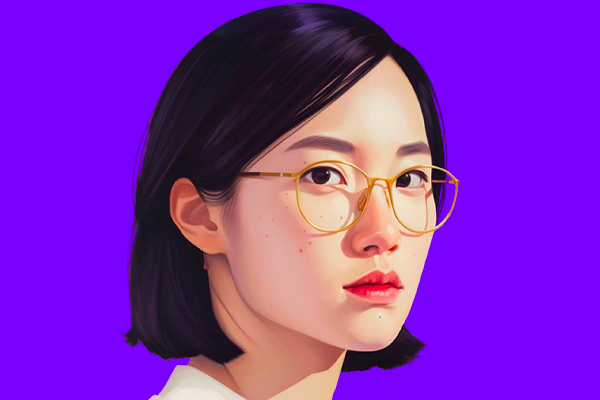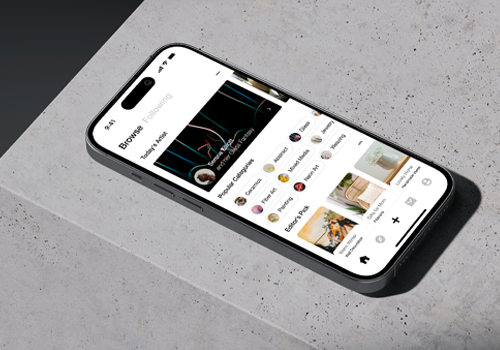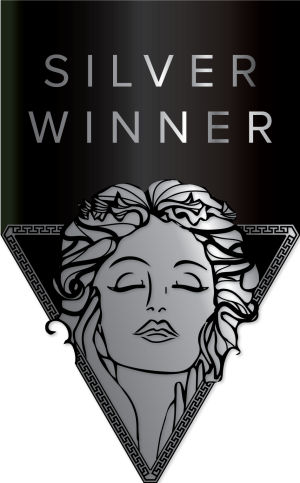
Interview
Mingzhi Cai
United States
Mingzhi Cai, a fintech product experience designer, is known as a versatile interdisciplinary designer who excels in various skills. She believes that great design goes beyond aesthetics; it's about enhancing lives and solving practical issues.
1 Please give us a brief bio of yourself and your creative background.
My name is Mingzhi Cai. I
2 What made you become/why did you choose to become a creative?
Growing up, I always found myself at the intersection of art and science. I've been a pragmatic STEM student, yet I've been interested in a variety of art forms such as poetry, crafts, photography, calligraphy, and painting. I have a profound desire for expression and creativity. I believe that being a designer balances the logical and expressive sides of my brain, so I naturally chose this career path.
3 Tell us more about your business/company, job profile, and what you do.
I currently work at one of the largest credit card companies in the world, Mastercard, as a product experience designer. I design digital solutions to assist organizations in improving their business. I work on a diverse range of enterprise products centered around digital payments. These products serve various purposes, such as assisting credit card issuers in monitoring real-time transaction performance, enabling suppliers to track invoices and collect payments, and aiding financial institutions in defining, applying, and tracking the profitability of their cash-back models. My goal is to empower organizations to enhance the efficiency of their operations and decision-making by crafting user-friendly, intuitive, and engaging experiences. Inside our design department, I
4 What does “creativity” mean to you?
To me, creativity is the art of combining vision and craftsmanship. It
5 To you, what makes a “creative” idea and/or design?
Firstly, a creative idea or design shouldn't be completely alien. It needs some level of familiarity so that people can understand and connect with it. However, it should also possess elements that diverge from the conventional
6 Tell us about your creative and/or design process.
To me, the design process is goal-oriented. I start by gathering detailed information about the context and business domain. This step includes asking numerous questions related to the problem space, and business expectations, and conducting thorough research to grasp the needs of the target users. Once the goal is sharply defined, I follow the standard iterative cycle: brainstorming, designing, testing, and revising. It's crucial to note that the creative process is neither linear nor finite. You cannot make a perfect design overnight, and likely you will never reach perfection. From my perspective, the essence of refinement and progress lies in continuous iteration. A more mature approach is to embrace time limits and other constraints, strive to find a harmonious balance, and aim for what can be termed as 'conditional perfection'.
7 What's your favorite part of the creative process and why?
I truly enjoy the design phase. It's like taking ideas right out of my head and bringing them to life. Sure, it's not a walk in the park. There are the challenges, the doubts, and all the unpredictable moments. But at the end of the day, I often stumble upon something I hadn't even considered before and achieve results I didn't think were possible. That's the magic of creativity for me.
8 Describe your creative style and its main characteristics.
My design style leans towards minimalism and practicality. I aim for designs that speak for themselves. If it needs a lot of explanation, then in my books, it's not hitting the mark. For me, the primary purpose of design is to serve its audience and solve a specific problem. A good design, in my eyes, efficiently does its job without any unnecessary frills. Part of this approach is ensuring that I avoid overwhelming the user's cognition. Less is often more.
9 Do you think your country and its cultural heritage has an impact on your creativity process?
Absolutely. As someone of Chinese descent, I hold deep pride in my cultural background. Our rich heritage spans arts, poetry, painting, embroidery, architecture, ceramics, gardening, and much more. Whenever I find myself at a creative impasse, I delve into our history and draw inspiration from what artists were creating in the past. Considering the vast expanse of our 5,000-year history, my personal experiences and knowledge feel like just a drop in the ocean. But that vastness is precisely where I find endless inspiration.
10 Congratulations! As the winner of the 2023 MUSE Creative Awards, what does it mean to you and your company and team to receive this award distinction?
It's truly an honor to receive this recognition. For me personally, it marks another significant milestone in my design journey, inspiring me to keep pushing boundaries and striving for excellence.
11 Can you explain a bit about the winning work you entered into the 2023 MUSE Creative Awards, and why you chose to enter this project?
"Gallermy" is a passion project of mine, centered around the dual goals of enhancing exposure for artists and ensuring their financial sustainability. The inspiration stemmed from the challenges posed by the pandemic, during which many physical galleries had to close their doors. This led to the rise of numerous virtual reality galleries. While the VR approach addresses the showcasing aspect, I felt a deeper need to support artists beyond mere exposure
12 What was the biggest challenge with this project?
The primary hurdle was genuinely grasping the real challenges artists confront daily. To tackle this, I initiated numerous interviews with artists via social media and also delved into YouTube videos where artists candidly discussed their endeavors to maintain creativity while also striving for profitability. This immersive research instilled in me a profound empathy for this community, which subsequently became the foundation for the following design stages of the project.
13 How has winning an Award developed your practice/career?
Winning the award has certainly amplified my visibility in the design industry. But beyond the recognition, what truly excites me is that it has opened doors to a broader network within the creative industry, connecting me with like-minded professionals and a myriad of inspirations.
14 What are your top three (3) favorite things about our industry?
Firstly, diversity: one thing I absolutely love about this field is how diverse it is. Everywhere you look, there
15 Where do you see the evolution of creative industry going over the next 5-10 years?
Over the next 5
16 If you were a student entering this industry or an aspiring MUSE Creative Awards submitter, what advice would you give them?
Dive in and don't hesitate to try. The creative industry rarely operates on strict formulas or definitive right answers. The best way to hone your skills and navigate the inherent uncertainties is through a process of trial and error. Never shy away from creating, and don't feel embarrassed about showcasing your work. Every step, even the missteps, is a part of your growth journey. Embrace it.
17 What resources would you recommend to someone who wants to improve their skills in the creative industry?
For those delving into user experience design, the Figma community is invaluable. If you're seeking a burst of creative inspiration, the classic Behance and Pinterest are your go-to platforms. To navigate the intriguing world of AI communication, I'd recommend Midjourney. And for specialized tutorials on a plethora of topics, Youtube remains an indispensable resource.
18 Who has inspired you in your life and why?
I.M. Pei holds a special place in my inspiration. Hailing from the same hometown as this renowned Chinese-American architect, I frequently visited the Lion Grove Garden during my youth. This once-private family sanctuary of his is now among the most iconic public traditional Chinese gardens. In my teenage years, Pei's exceptional skill at intertwining science and art, as well as Chinese and Western design philosophies, deeply resonated with me, so much so that I nearly pursued a career in architecture. His architectural pieces stand as a testament to balance
19 What is your key to success? Any parting words of wisdom?
If I've learned anything, it's that we shouldn't get too caught up in society's grand idea of success, which can sometimes just be fancy titles or shiny objects. For me, it's all about understanding what success truly means on a personal level. Dream big, sure, but when it's time to roll up your sleeves, focus on the small, achievable steps. Celebrate those little victories along the way, because they build up. As they say, Rome wasn

